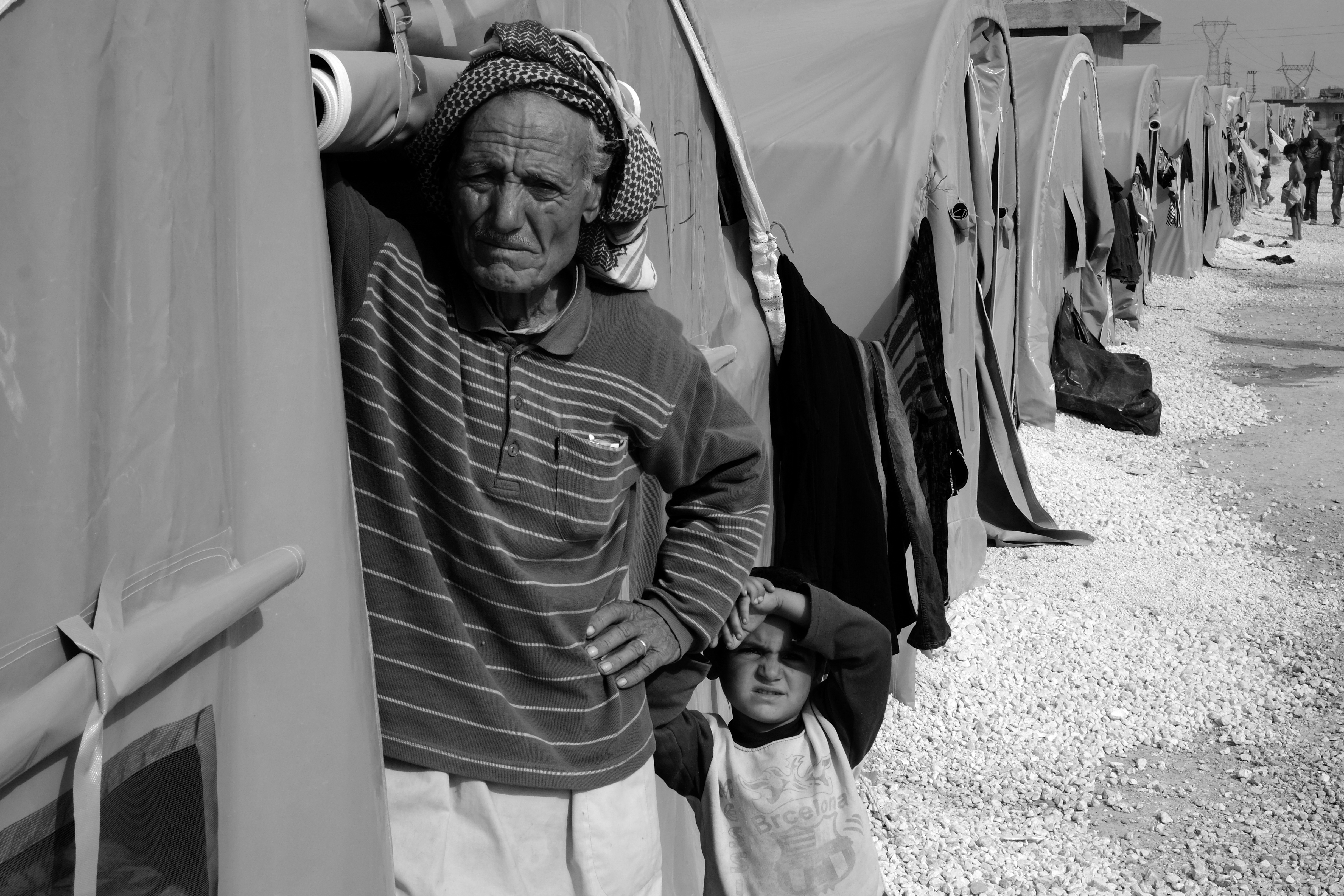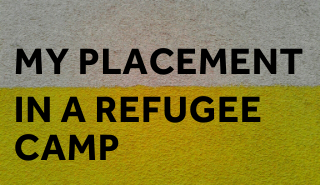Careers Brand Ambassador Dani interviews her friend Meg on her placement experience in a refugee camp.
So, hello! Today I’m joined with Meg, who recently did a placement.
Meg, what course do you study?
I study international development, with a placement year.
And, what year are you currently in?
I’m in my second year
OK, so who was your placement with and where was it?
My placement was with an organisation called No Name Kitchen and it was in Serbia.
How did you get this placement?
I found the organisation online, through Facebook, and then got in contact with them because it was something I was really interested in and then it’s kind of flown from there.
Amazing, so when did you go?
I went there for the first time last year, and then I went again over the summer.
When you got there, what did you do, what was day-to-day like?
It changed from when I first arrived, obviously, to when you are a couple of months or weeks in because you get to know more of what’s happening, but yeah, when I first arrived it was quite overwhelming at the beginning. Pretty much you get stuck into things. The best way to know what’s going on is just to do everything.
So, what were you actually doing within the placement?
Oh – right – OK! So, the placement is working in a border town, so I was working in a town which is very close to Croatia, and it was providing emergency aid to refugees in a non-government camp/facility. The daily runnings of the charity was making sure the needs of refugees were met to the best ability we could.
How did you feel about going abroad?
Um, it was my first time going to work abroad but I still felt very nervous going. Obviously, it’s an unfamiliar situation: different country, didn’t speak the first, second or even third language. Very nervous, even a couple of days in I was still very nervous but now it’s completely different. Like I said before, if you just get stuck in, just get used to it and then you near enough, all the time, have a great time.
What did you learn most from the experience about yourself?
I learnt that, um, that, I was very – don’t have lots of presumptions before going because you hear a lot about it in the news, how a lot of NGOs work with refugees and like all the big ones, but I went in thinking it would work the same, having done quite a lot of research before going but it was completely different in a good way. So, I’ve learnt to be more open-minded and sort of go with no expectations into things now.
What was the biggest challenge about going abroad?
Definitely the language barrier. It is something you easily overcome with experience but when I first encountered it, it’s just simply things like travelling to and from wherever you need to be. The first time you ever do it, no one can speak English and you’re trying to figure out the best route, it can be quite difficult but that’s what also kind of makes it fun as well.
Just talking about challenges, what was the biggest challenge in the placement for you?
I think it was emotionally challenging, questioning – not to get too deep – but questioning humanity and why like if you’re experiencing these hardships that these people have experienced. You feel like, when you’re in it, you’re so committed to it and – like – why isn’t everyone else working with these people or working towards trying to help these people. So, yeah, that was challenging realising that everyone back home was living in a different world, whilst your so passionate about this one. It was interesting to see that it’s two different worlds, yet we’re all on the same world.
So then like going back home, how did you find that transition? Going abroad was obviously a very a very big shift, but then going back is a big shift that people don’t realise.
It is! It’s really weird! I was actually chatting to one of my friends about it the other week. You come back and it’s like this really weird time, it’s a couple of days and it’s just really weird. Normally I come back and I haven’t got any commitments straight away. I try and do that and it’s kind of like this really weird time where it just switches back to normal, which is a good thing and a bad thing, because the people are still living their life that you were basically involved with when you were over there, that is still happening, so in the back of your mind – for me – it’s always there. The transition is always difficult getting back into your normal university, experiencing quite a privileged life. That transition usually it’s quite difficult.
How do you feel your experience links to your career path and degree?
Very relevant. When I leave university, I want to work with refugees, people on the move, human rights and that sort of aspect. I find it’s really relevant and it’s gained me skilled and information that I would’ve probably never gained from a lecture or classroom setting, so I feel like it was really beneficial.
Amazing, so what was your main takeaway from the whole experience?
My main takeaway from the whole experience, oh my goodness. That I was just working with one small organisation, in one small town and there’s so many more, specifically to the refugee crisis all over the world, and now I see it as individual humans rather than before, where I saw it as a figure on the news or a screen. Now I see each individual story, so a lot more… not sure where I’m going with this.
Yeah, like you see individual stories, individual people. Your main takeaway is that the refugee crisis isn’t just a statistic, but it’s just people, like us, who are trying to get a home and that’s the main lesson you learnt from your whole experience.
Yeah, for sure.
OK, amazing – thank you so much!

